I’m attending the Christian Association for Psychological Studies (https://caps.net/) Annual Conference and heard Dr. Richard Beck present on Self-esteem in a wonderful exploration of the hidden costs of our preoccupation with this topic. We all are caught in a cycle of self-evaluation that either boosts our self-esteem or diminishes it. Trying to keep a balance of just the right amount of self-esteem is an on-going tension happening within us all the time. Too much self-esteem leads to a self-absorption that makes us off-putting to others and too little lands us in pre-occupied worry, self-loathing or a social paralysis. Added to all that either too much or too little self-esteem can keep us trapped in a fixation on other’s perceptions of us. Beck refers to this as a Goldilock’s dilemma. It’s no fun.
Psychotherapy has focused for several decades on attempting to boost our self-esteem. We try to talk clients into feeling better (processes of the mid-brain or Limbic system) by assailing their frontal lobes (the cerebral cortex or the wrong target in our brain) with affirmations and soothing reframes. This doesn’t address the actual problem of our struggling selves, trying to get this teetering balance of self-esteem just right moment to moment. We so desire to feel OK!
Beck suggests that we consider a different focus, based not in the teeter-toter of self-esteem, but in transcendence of self. Our desire needs a new direction. The practice of contemplation is a good place to practice allowing our minds to quiet so that we find a “quiet ego” or a “small self” (https://psycnet.apa.org/record/2015-21454-002) that discovers a new kind of connection to others that isn’t dominated by pleasing the other or ruled over by pleasing the false self. Researchers have connected this refocusing to the experience of awe with the result in humans of an increase in prosocial behavior. We find space to feel small when we look at the expanse of night sky or in religious epiphanies and mystical experience. Science points us back to the healthy practice of spirituality.
More to come on the small self and guidance for our growth related to our desires and the freedom of spiritual practices.
